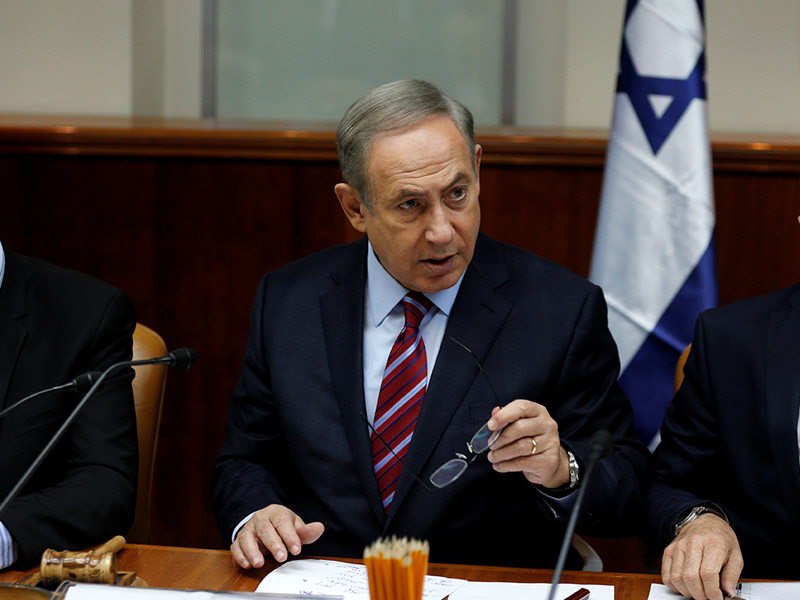PM Netanyahu's remarks at the start of the Cabinet meeting
-
-
5/6/2018
GovXShortDescription
We are determined to block Iran's aggression against us even if this means a struggle. Nations that were unprepared to take timely action to counter murderous aggression against them paid much heavier prices afterwards.
-
-

 Prime Minister Netanyahu at the weekly Cabinet meeting (archive)
Copyright: Reuters/Amir Cohen
Prime Minister Netanyahu at the weekly Cabinet meeting (archive)
Copyright: Reuters/Amir Cohen
|
GovXContentSection
(Communicated by the Prime Minister's Media Adviser)
Prime Minister Benjamin Netanyahu, this morning (Sunday, 6 May 2018), at the start of the weekly Cabinet meeting, made the following remarks:
"On Tuesday I will leave for Nicosia for the fourth meeting with the leaders of Cyprus and Greece. I will discuss with them a series of issues, first and foremost the feasibility of laying a joint Israeli-Cypriot-Greek gas pipeline to Italy. The export of Israeli gas to Western Europe could make a very significant contribution to the Israeli economy.
On Wednesday I will meet with Russian President Putin in Moscow and will participate in the parade to mark Victory Day over Nazi Germany. Meetings with the Russian President are always important for the security of Israel and the coordination between the IDF and the Russian military. Israel maintains full freedom of action to defend itself. All of our meetings are important, but this week's meeting is especially important in light of Iran's increasing efforts to establish a military presence in Syria against Israel.
In recent months, the Iranian Revolutionary Guards organization has transferred to Syria advanced weaponry in order to attack us both on the battlefield and on the home front, including weaponized UAVs, ground-to-ground missiles and Iranian anti-aircraft batteries that would threaten air force jets.
We are determined to block Iran's aggression against us even if this means a struggle. Better now than later. Nations that were unprepared to take timely action to counter murderous aggression against them paid much heavier prices afterwards. We do not want escalation, but we are prepared for any scenario.
The government has set for itself a national goal to cut bureaucracy. Our efforts in recent years are indeed bearing fruit. Within two years, from 2015-2017, Israel improved its position on the international competitiveness index from 27th to 16th.
Today we will publish a book on the government's plans to further lessen the regulatory burden. Regulation costs us in competitiveness, inefficiency and additional money paid by the citizen. Lowering regulation improves all of these areas.
The plans that we are submitting to the Cabinet today will lead to direct savings in costs to the economy of over NIS 1.3 billion per annum. The overall savings for this year, along with the previous year, will reach NIS 3 billion, which will be saved from business-owners and citizens. This is simply money that will remain in people's pockets instead of going to an inefficient bureaucracy.
In a review to be released soon, the OECD expresses appreciation for the steps being taken to reduce bureaucracy, [increase] people's savings and promote growth. Everything is integrated."
-
-
-
-
-
-
-
-
-
-
-
-
-
-
-
-
-
-
-